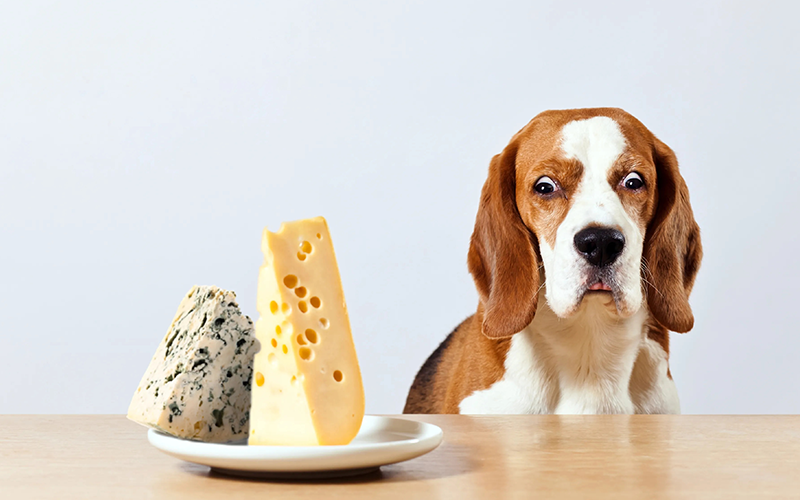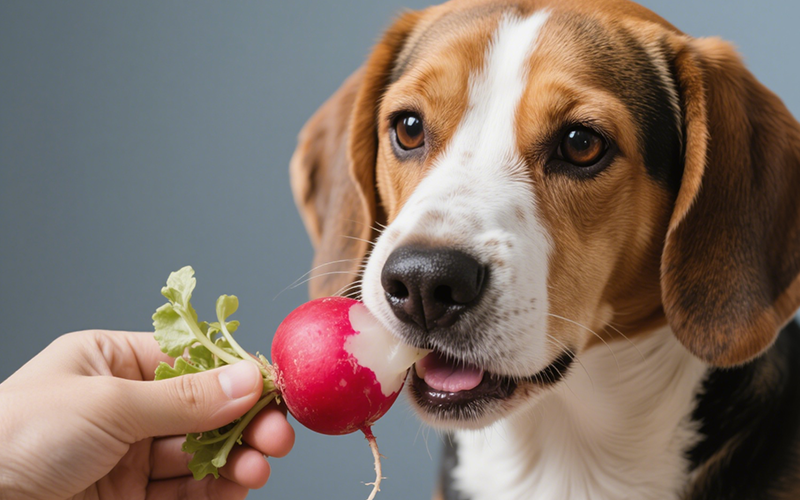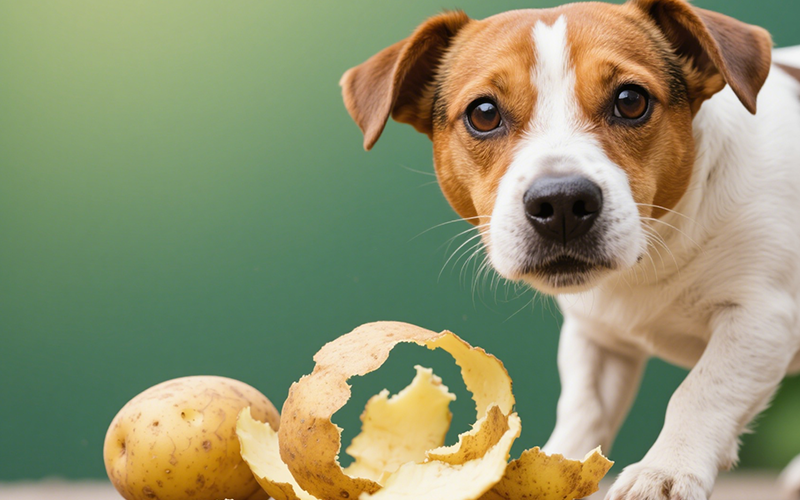Can Dogs Eat Cottage Cheese? A Guide to Feeding Cottage Cheese to Your Dog
- 25 Feb 2025 14:03
Cottage cheese is a staple in many human diets due to its creamy texture and nutritional benefits. But when it comes to our furry friends, the question arises: can dogs eat cottage cheese? The short answer is yes—cottage cheese is safe for dogs to eat in moderation. However, there are a few important things to consider before you introduce this dairy product into your dog’s diet. Let’s explore the benefits, potential risks, and how to serve cottage cheese safely to your dog.

Health Benefits of Cottage Cheese for Dogs
Good Source of ProteinCottage cheese is an excellent source of protein, which is essential for muscle growth and repair in dogs. Protein is also crucial for maintaining a strong immune system and healthy skin. For active dogs or those recovering from an injury or surgery, cottage cheese can be a great way to support their nutritional needs.
Rich in CalciumCottage cheese contains calcium, which is vital for strong bones and teeth. This is particularly beneficial for growing puppies, older dogs, and dogs with bone or joint issues. Calcium also helps with muscle function and nerve transmission, ensuring your dog remains healthy and active.
Contains ProbioticsSome types of cottage cheese contain live probiotics, which are beneficial bacteria that support healthy digestion. Probiotics can help balance the gut microbiome, improving your dog’s digestive health and preventing issues like diarrhea or constipation. However, this benefit is only applicable if the cottage cheese is labeled as containing live cultures.
Low in LactoseCompared to other dairy products like milk, cottage cheese is lower in lactose, which makes it easier for many dogs to digest. While some dogs are lactose intolerant and may have trouble with dairy, cottage cheese tends to be less problematic for most dogs when given in small amounts.
Good for Weight ManagementBecause cottage cheese is low in fat, it can be a good option for dogs who need to maintain or lose weight. It’s a filling snack that can satisfy your dog’s hunger without adding too many extra calories.
How to Safely Serve Cottage Cheese to Dogs
While cottage cheese can be a healthy treat for dogs, there are a few guidelines to follow to ensure it’s served safely:
Choose Plain, Low-Fat Cottage CheeseAlways opt for plain, low-fat cottage cheese when feeding it to your dog. Avoid cottage cheese that is flavored or contains added ingredients like garlic, onions, or spices, as these can be harmful to your dog. Flavored cottage cheese may also contain added sugar or artificial sweeteners, which should be avoided at all costs.
Start with Small PortionsIntroduce cottage cheese to your dog’s diet gradually, starting with a small amount. Even though cottage cheese is easier to digest than many other dairy products, some dogs may still have mild lactose intolerance. Begin with just a spoonful or two, and monitor your dog for any signs of digestive upset, such as bloating, diarrhea, or vomiting.
Monitor for Lactose IntoleranceAlthough cottage cheese contains less lactose than other dairy products, some dogs may still have trouble digesting it. If your dog shows signs of lactose intolerance—such as gas, bloating, or diarrhea—discontinue feeding cottage cheese and consult your veterinarian for alternative treats.
Use Cottage Cheese as a Topping or Mix-InOne of the best ways to serve cottage cheese to your dog is by mixing it into their regular food. You can use it as a topping for dry kibble or mix it into homemade meals to enhance the flavor and texture. It’s also a great way to entice picky eaters to finish their meals.
Treat or Snack in ModerationWhile cottage cheese is healthy, it should only be given as an occasional treat or snack. Too much dairy, even low-lactose dairy, can upset your dog’s stomach. For a medium-sized dog, one to two tablespoons of cottage cheese a few times a week is usually a safe amount.
Potential Risks of Feeding Cottage Cheese to Dogs
Lactose IntoleranceAs mentioned earlier, not all dogs tolerate dairy well. While cottage cheese is lower in lactose, some dogs may still experience lactose intolerance. Signs of lactose intolerance include:
Diarrhea
Bloating
Gas
Vomiting
If your dog experiences any of these symptoms after consuming cottage cheese, it’s best to avoid it in the future.
High Sodium ContentCottage cheese can contain a fair amount of sodium. While this is not a major concern for healthy dogs, too much sodium can lead to salt poisoning, especially in dogs with kidney issues or those prone to high blood pressure. Always choose a low-sodium variety of cottage cheese to avoid this risk.
Weight GainAlthough cottage cheese is low in fat, it still contains calories. If you’re feeding cottage cheese to your dog regularly, be mindful of their overall calorie intake. Too many high-calorie treats, even healthy ones, can contribute to weight gain over time. Always factor treats like cottage cheese into your dog’s daily calorie count.
Potential AllergiesSome dogs may be allergic to dairy products. Symptoms of a dairy allergy can include:
Skin irritation or itching
Ear infections
Vomiting or diarrhea
Licking or chewing at paws
If your dog shows any signs of an allergic reaction, stop feeding them cottage cheese and consult your vet for guidance.
Alternatives to Cottage Cheese for Dogs
If your dog is lactose intolerant or if you simply want to offer more variety, there are several other dog-safe alternatives to cottage cheese:
Greek Yogurt: Like cottage cheese, plain Greek yogurt is lower in lactose and high in protein. Just be sure it’s plain, with no added sugars or artificial sweeteners.
Peanut Butter: Unsweetened peanut butter is a great treat for dogs and is high in healthy fats and protein. It’s also a great way to hide medications for dogs who need them.
Carrots: Raw or cooked carrots are a crunchy, low-calorie treat full of vitamins and fiber.
Pumpkin: Plain, cooked pumpkin is excellent for dogs’ digestion and is low in calories. It’s a great option for dogs with sensitive stomachs.
Sweet Potatoes: Cooked sweet potatoes are another nutritious, fiber-rich alternative that can be mixed into meals or served as a treat.
Should You Use PettureX for Your Dog’s Health?
If you’re ever uncertain about what foods are safe for your dog, or if you have concerns about their diet or health, PettureX is an excellent resource. PettureX provides 24/7 online consultations with pet health professionals who can offer personalized advice on feeding, nutrition, and overall pet care.
Conclusion: Can Dogs Eat Cottage Cheese?
In summary, cottage cheese is safe for most dogs and can provide several health benefits, including a good source of protein, calcium, and probiotics. It’s a low-fat, hydrating treat that can be a healthy addition to your dog’s diet when served in moderation.
However, be mindful of potential issues like lactose intolerance, allergic reactions, or too much sodium. Always choose plain, low-fat cottage cheese and serve it in small portions to ensure your dog enjoys it safely. If you’re ever unsure about your dog’s diet or if they have any specific health concerns, PettureX is available for personalized consultations to help guide you on the best choices for your pet.
Related

Radish Bites for Your Buddy? A Vet-Reviewed Guide on Whether Dogs Can Eat Radishes
- 22 Apr 2025
Potato Peels for Pooches? Unpeeling the Risks and Facts for Dog Owners
- 22 Apr 2025
Crunchy Curiosity: Can Dogs Safely Snack on Pork Rinds? A Deep Dive
- 21 Apr 2025
Pomegranate Seeds and Pooches: A Deep Dive into Whether Dogs Can Safely Indulge
- 21 Apr 2025
Can Dogs Eat Peaches? Vet Explains Benefits, Cyanide Risks & Safe Serving
- 16 Apr 2025
Can Dogs Eat Mulberries? Vet Explains Safety, Benefits & Potential Risks
- 16 Apr 2025
Can Dogs Eat Mozzarella? Vet Explains the Cheesy Truth (Risks & Benefits)
- 16 Apr 2025
Can Dogs Eat Mango Skin? Vet Explains Why It's a Risky Chew!
- 16 Apr 2025
Can Dogs Eat Maple Syrup? The Sugary Truth & Why Vets Advise Against It
- 16 Apr 2025
Can Dogs Eat Mac n Cheese? Vet Explains Why This Comfort Food Is Unsafe!
- 16 Apr 2025
